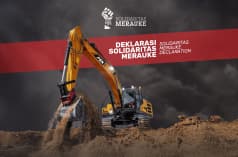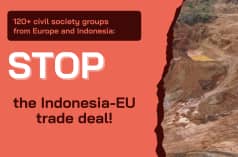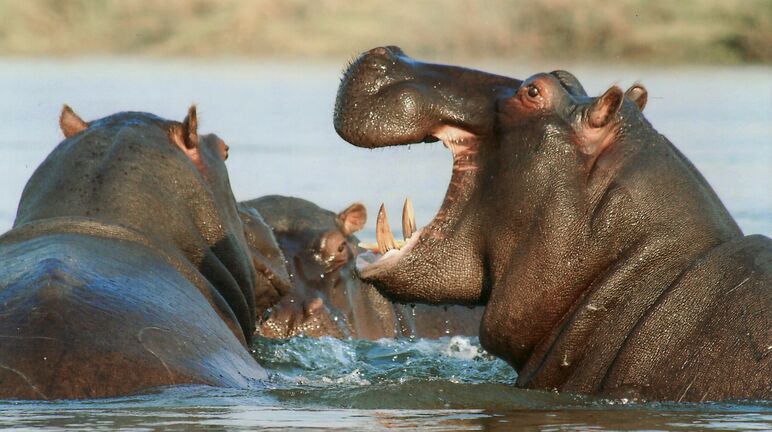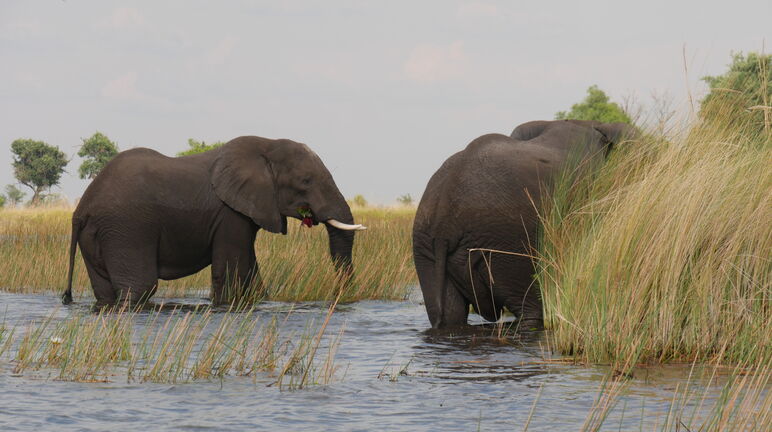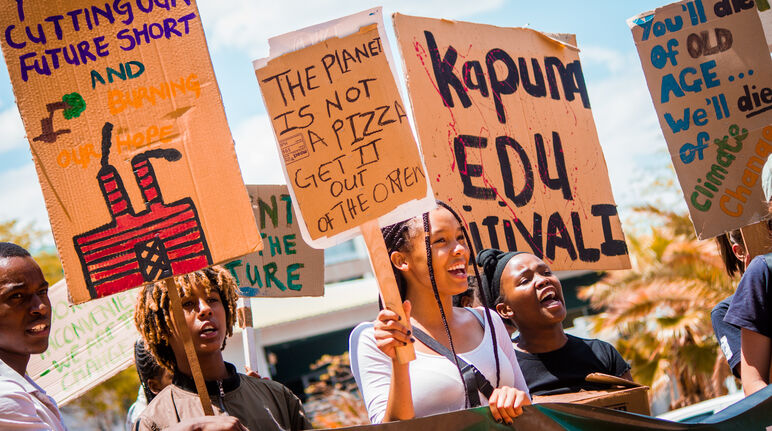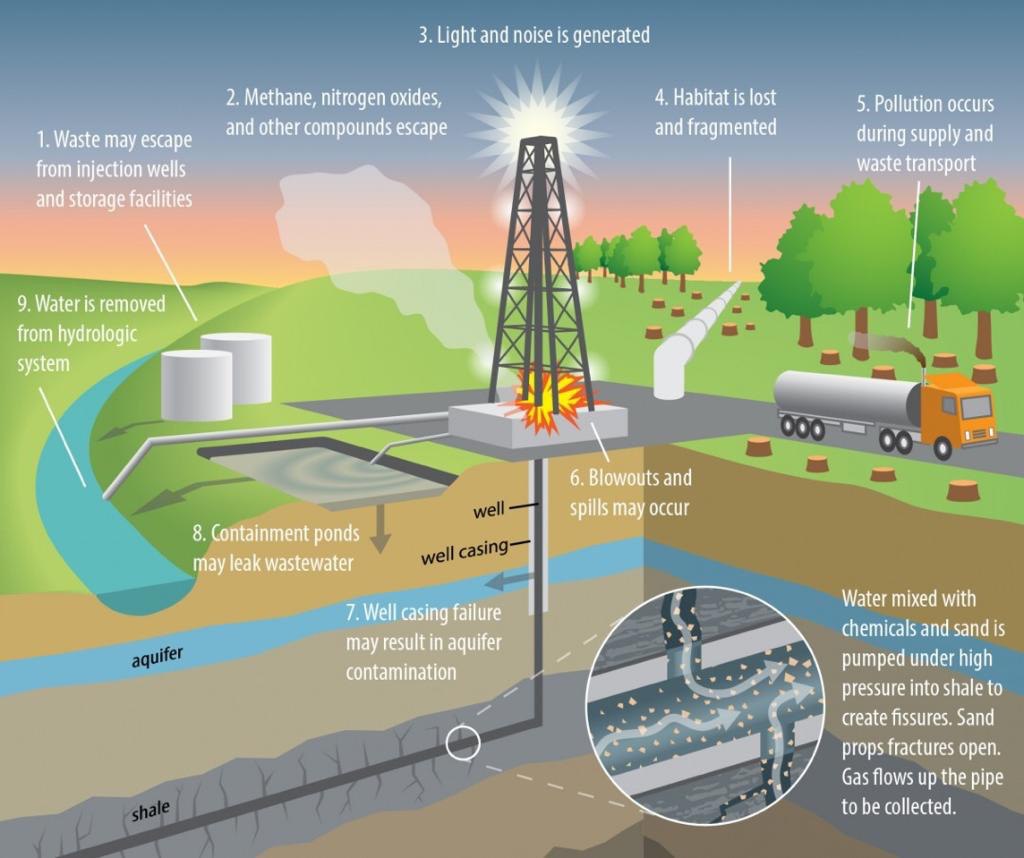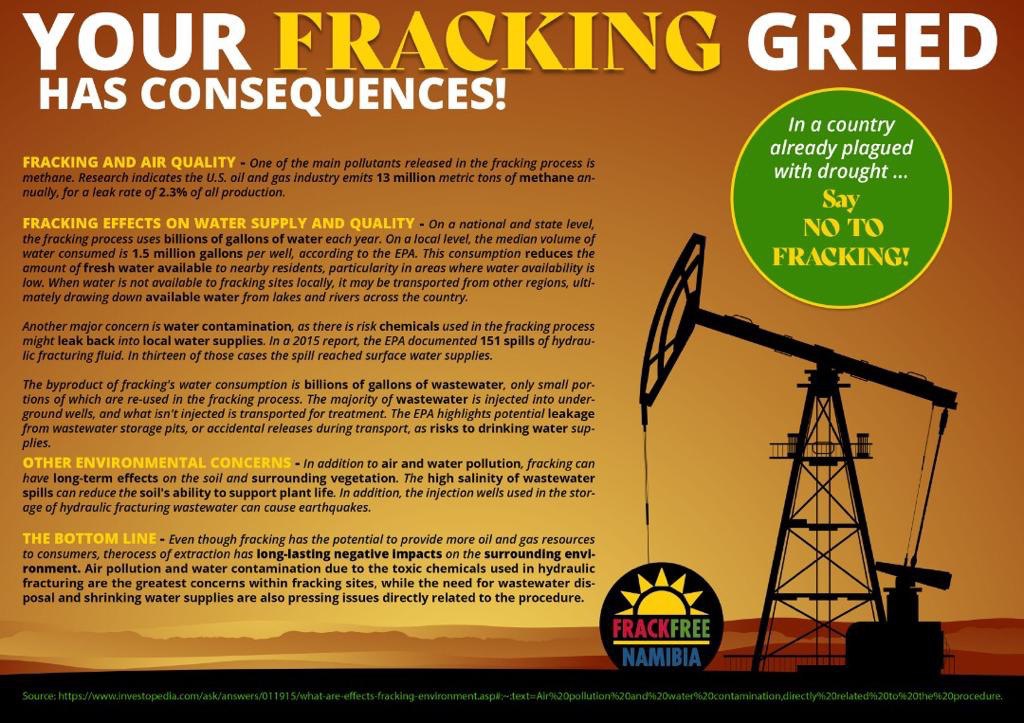Keep the oil industry out of Africa’s natural treasures!
Nature, wildlife and scarce water supplies in a unique corner of southern Africa are being endangered by a rush to drill for oil. A Canadian company is pushing to explore for oil in the Kavango Basin, an environmentally sensitive area. Please support the fight against a fossil fuel project that will drive the climate crisis.
News and updates Call to actionTo: the Presidents of Namibia and Botswana; the Prime Minister of Namibia, Saara Kuugongelwa-Amadhila
“Oil drilling threatens Namibia’s and Botswana’s nature as well as the global climate. Please stop ReconAfrica’s fossil fuel project.”
“The oil needs to stay in the ground”, says Ina Shikongo. The Fridays for Future (FFF) activist in Namibia’s capital city Windhoek is fighting a project to exploit untapped oil and gas reserves in the northeast of the country. “The exploitation would be a catastrophe – not only for the global climate, but also for wildlife, water resources and the livelihoods of local people”.
The project Ina rejects so fiercely – together with further FFF activists and a citizens' coalition – is run by ReconAfrica, a firm based in Canada. The company claims to have discovered an immense deep sedimentary basin and obtained a license for oil and gas exploration in the Kavango delta.
If the drilling of the test boreholes is successful, the company plans to extract two billion barrels of oil before drilling into deeper layers of rock. Environmentalists fear the company will use fracking despite public statements to the contrary, as its marketing materials refer to “unconventional” methods – an industry euphemism for fracking.
The ecological impacts of the projects are likely to be devastating. It would not only threaten bodies of water in the dry savannas of Namibia, but also Botswana’s UNESCO World Heritage Site, the Okavango Delta, with its unique biodiversity and huge populations of elephants, hippos, rhinos and birds. Tourism, an important source of income, is in danger while other livelihood strategies of indigenous San and local people also hang in the balance.
We need to stop ReconAfrica’s project for the sake of the climate, biodiversity, water, and the livelihoods of the local people.
Please support our demands with your signature.
BackgroundThe Okavango Basin is an endorheic basin that covers an area of over 2.5 million km2 across Namibia, Angola and Botswana. The basin, which includes the Okavango Delta, is one of Africa’s most biodiverse habitats, home to a myriad of birds and megafauna species including the largest African elephant population left on the planet. The delta, a Ramsar and UNESCO World Heritage Site, remains one of the largest intact wetlands. Nearly one million people are dependent on the Okavango basin for their livelihoods.
ReconAfrica’s license is completely within the Kavango Zambezi Transfrontier area and overlaps with six locally managed wildlife reserves and a UNESCO World Heritage Site. African elephants, African wild dogs, lions, leopards, giraffes, birds and rare flora will be deleteriously affected by the project.
Environmentalists point to the Niger Delta in Nigeria, where oil exploitation by Shell and other corporations has caused an ecological and social nightmare. This must not be repeated in Namibia and Botswana.
Namibian and Botswana environmentalists anticipate the following impacts:
- The region’s ecosystem will be destroyed by a Canadian company that will rake in 90% of the profits.
- ReconAfrica’s project will lead us to burn through what little remains of the planet’s dwindling global carbon budget and hampers global efforts to move beyond fossil fuels. The company must not be allowed to destroy such a globally vital conservation area under the guise of economic development.
- Oil and gas extraction is a menace to wildlife. Loud noises, human movement and vehicle traffic from drilling operations can disrupt avian species’ communication, breeding and nesting.
- The infrastructure built for energy development can also have a negative impact: power lines, well pads, fences and roads fragment the habitats of many species.
- The construction of roads, facilities and drilling sites known as well pads requires the use of heavy equipment and can destroy big chunks of pristine wilderness.
- Such damage is often irreversible.
- Transporting the oil rig will destroy local roads. How heavy oil and gas industry equipment has impacted road infrastructure and led to deadly accidents has been amply documented in other countries.
- The region’s tourism industry will be shaken and thousands of people might not only lose their jobs, but their investments as well. Who would want to go on safari in a landscape littered with oil wells?
- The project would deplete and pollute the region’s aquifer. How can one justify giving an overseas company unbridled access to the region’s most precious resource?
- The project will worsen food insecurity in the region, as water is the life source of communities in the Okavango ecosystem.
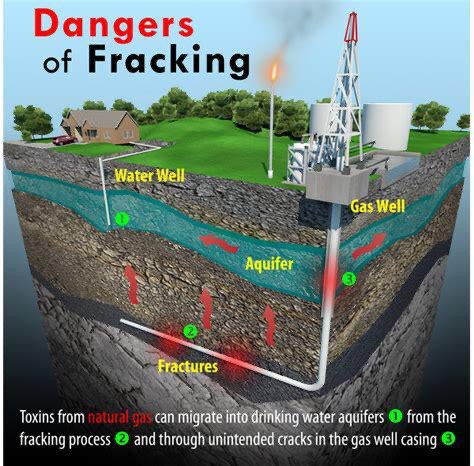
To: the Presidents of Namibia and Botswana; the Prime Minister of Namibia, Saara Kuugongelwa-Amadhila
Ladies and Gentlemen,
I am writing to you to express my concerns about a prospecting license for oil and gas exploration that Reconnaissance Africa (ReconAfrica), a Canadian company, obtained for Namibia’s environmentally sensitive Kavango basin. The project also affects Botswana.
A coalition of civil society organizations and individual Namibians, Botswana and global citizens rejects the project. I support their rejection, based on these reasons:
The project threatens to pollute and destroy nature and protected areas. The exploration sites are within the KAZA Transfrontier Park, the largest terrestrial transfrontier conservation area in the world. The prospecting area in Namibia and Botswana borders three national parks. The Okavango River and the Panhandle supply water to the unique Okavango Delta, which is a UNESCO World Heritage Site. The prospecting area also overlaps with several community conservancies and community forests and another UNESCO World Heritage Site, Tsodilo Hills, revered amongst the First Nations San community who live nearby in one of their last refuges.
What is particularly alarming to me is that the marketing material of ReconAfrica makes implicit reference to fracking – e.g. “unconventional play”, “unconventional methods”, etc. These are industry euphemisms for fracking.
This exploitation project reeks of neo-colonialism: Particularly worrisome is that ReconAfrica claims it owns 90% while the Namibian Oil Corporation NAMCOR owns the remaining 10%. On the Botswana side, ReconAfrica owns 100% of the mining license. The Namibian government will only collect 5 % royalties.
The Namibian and Botswana public knows little about this huge project and the impacts it will have. Local residents, farmers and the indigenous San people have not been consulted, which represents a violation of the principles of Free, Prior and Informed Consent (FPIC).
I am deeply concerned about the anticipated and historically documented impacts of oil and gas exploration in environmentally sensitive ecosystems:
- depletion and pollution of limited water resources (surface and aquifer), particularly in countries that experience extreme droughts
- drilling requires clearing the area of vegetation, thus causing deforestation and desertification
- roads leading to the drilling sites could lead to an increase in poaching
- noise level rises from drilling – and potentially fracking – that impact people and wildlife
- air pollution that leads to health issues
- seismic activities, including earthquakes, that may persist long after drilling
The extensive negative and long-term impacts to the environment and indigenous communities, tourism, and to Namibia and Botswana‘s good international reputation far outweigh the benefits – which will mostly be raked in by ReconAfrica and its investors.
Based on the above, I support the coalition’s demands:
Please take all measures in your power and responsibility to stop this future-wrecking venture. We must keep oil in the ground and instead attract investment in renewable energies, which is a far more sustainable and feasible option for the two countries.
Yours faithfully,
cc:
the Director of the UNESCO World Heritage Centre, Mechtild Rössler
the Prime Minister of Canada, Justin Trudeau
UNESCO World Heritage Committee expresses “utmost concern” about Okavango Delta
At its September 2023 meeting in Riyadh, Saudi Arabia, in, the UNESCO World Heritage Committee expressed “utmost concern” about the risk of oil and gas exploration in this protected wetland. The project “may pose significant risks to the interconnected water system and the ecosystem,” the committee said.
Because only the Okavango Delta is protected as part of the wider Okavango ecosystem, the committee urged Botswana, Angola, and Namibia to expand the World Heritage site to include the entire watershed.
Study warns of pollution of the delta
A study published in October 2023 in the journal Physics and Chemistry of the Earth suggests that the Okavango Delta and its watershed could be severeky polluted by ReconAfrica’s drilling activities. Contaminated groundwater from the oil fields could “could take 3–23.5 years to reach the Okavango River system via the shallow sandy aquifer, but in a worst-case scenario, contamination could reach the Delta within four days”.
The authors of the study recommend “prohibiting oil exploration and production activities … until future studies can determine the impacts of hydrocarbon extraction with greater certainty”.
Late 2023: project status unclear
- On June 27, 2023, National Geographic published an article headlined “Canadian oil company pauses controversial drilling in Namibian wilderness”.
The company stopped drilling “for now”, and then told employees they were no longer needed. According to the article, the company appears to have left Namibia.
- On September 30, 2023, the Voice of America (VOA) published an article entitled “Canada’s ReconAfrica Violated Namibia’s Laws“. Among other things, it dealt with the consultation rights of local people. Despite these findings, ReconAfrica was granted permission to continue exploring for oil.
Previous articles have already discussed the company’s legal problems.
- On October 12, 2023, Reuters published an interview with ReconAfrica’s new CEO, Brian Reinsborough, headlined “ReconAfrica’s new CEO doubles down on Okavango exploration in 2024“. The 2024 program includes four to six wells. Reinsborough described criticism from environmentalists as “noise”.
- On October 30, 2023, ReconAfrica released a statement headlined “ReconAfrica granted the second renewal exploration period”. It states:
“ReconAfrica”) and its joint venture partner NAMCOR (the state oil company of Namibia), have been granted approval for the Second Renewal Exploration Period by the Ministry of Mines and Energy (“MME”). The Second Renewal Exploration Period covers the period from 30 January 2024 to 29 January 2026, relating to the approximate 6.3-million-acre Petroleum Exploration Licence 73 (“PEL 73”).
“ReconAfrica” and its joint venture partner NAMCOR (Namibia’s state oil company) have received approval from the Ministry of Mines and Energy (MME) for the second exploration extension period. It covers the period from January 30, 2024 to January 29, 2026 and relates to the approximately 25,500 square kilometers (6.3 million acres) of Petroleum Exploration License 73 (“PEL 73”).
Namibia: Canadian oil company reportedly destroys pristine bushland
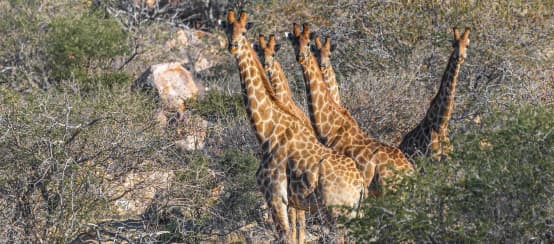
The Canadian oil company ReconAfrica is accused of destroying pristine bushland in Namibia. According to local environmentalists, the company cleared a 2.5 kilometer-long track for seismic investigations. ReconAfrica has also announced plans to drill three to six test wells in 2022.
This petition is also available in the following languages:
Help us reach 200,000:

